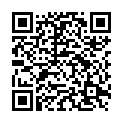|
|
|
| Module code: WIBASc615 |
|
|
- |
|
15 |
| Semester: 6 |
| Mandatory course: yes |
Language of instruction:
German |
Assessment:
Activity report
[updated 13.09.2018]
|
WIBASc615 (S450-0076) Industrial Engineering, Bachelor, ASPO 01.10.2013
, semester 6, mandatory course
|
|
The total student study time for this course is 450 hours.
|
Recommended prerequisites (modules):
None.
|
Recommended as prerequisite for:
|
Module coordinator:
Studienleitung |
Lecturer: Studienleitung
[updated 08.05.2012]
|
Learning outcomes:
After successfully completing this module students will:
_ be able to put their theoretical knowledge into practice in solving concrete problems.
_ be able to rethink what they have already learned and use it in practice.
_ have the ability to develop theories and solutions based on their knowledge.
_ have gained well-founded practical experience and can assert themselves in an operational environment.
[updated 13.09.2018]
|
Module content:
Procedure: The student must find an employer, either independently or with the support of the university, who will cooperate with him/her during the practical phase. The employment contract signed by the company must be submitted to the office responsible for internships/practical study at the respective faculty. In addition, the student must have a supervising professor whose name must also be passed on to the office responsible for internships/practical study at the respective faculty.
During the practical phase, the supervising professor serves as the student´s contact person.
At the end of the practical phase, the student must present the office responsible for internships/practical study at the respective faculty with an employer´s reference that will then be passed on to the supervising professor in copy. In addition, a five-page report on the completion of the practical study phase (consisting of WIBASc615 and WIBASc715) must be prepared. On the basis of the student assessment in the employer´s reference and the supervising professor´s impression, the supervising professor will then accept or reject the work performed as a practical phase.
The content depends on the individual task and should be coordinated between the student, the university professor and the company.
[updated 13.09.2018]
|
Teaching methods/Media:
[updated 13.09.2018]
|
Recommended or required reading:
[updated 13.09.2018]
|

